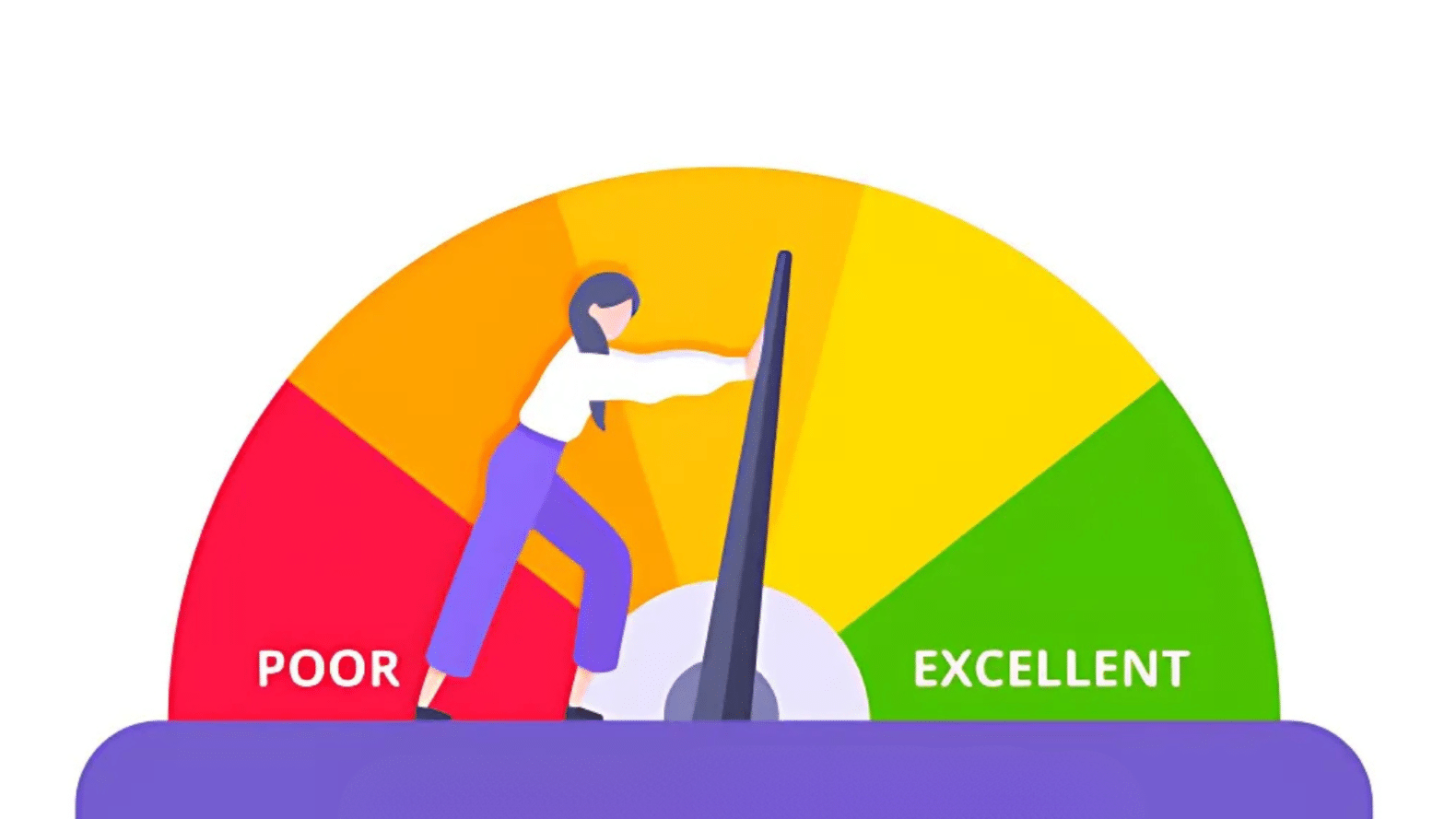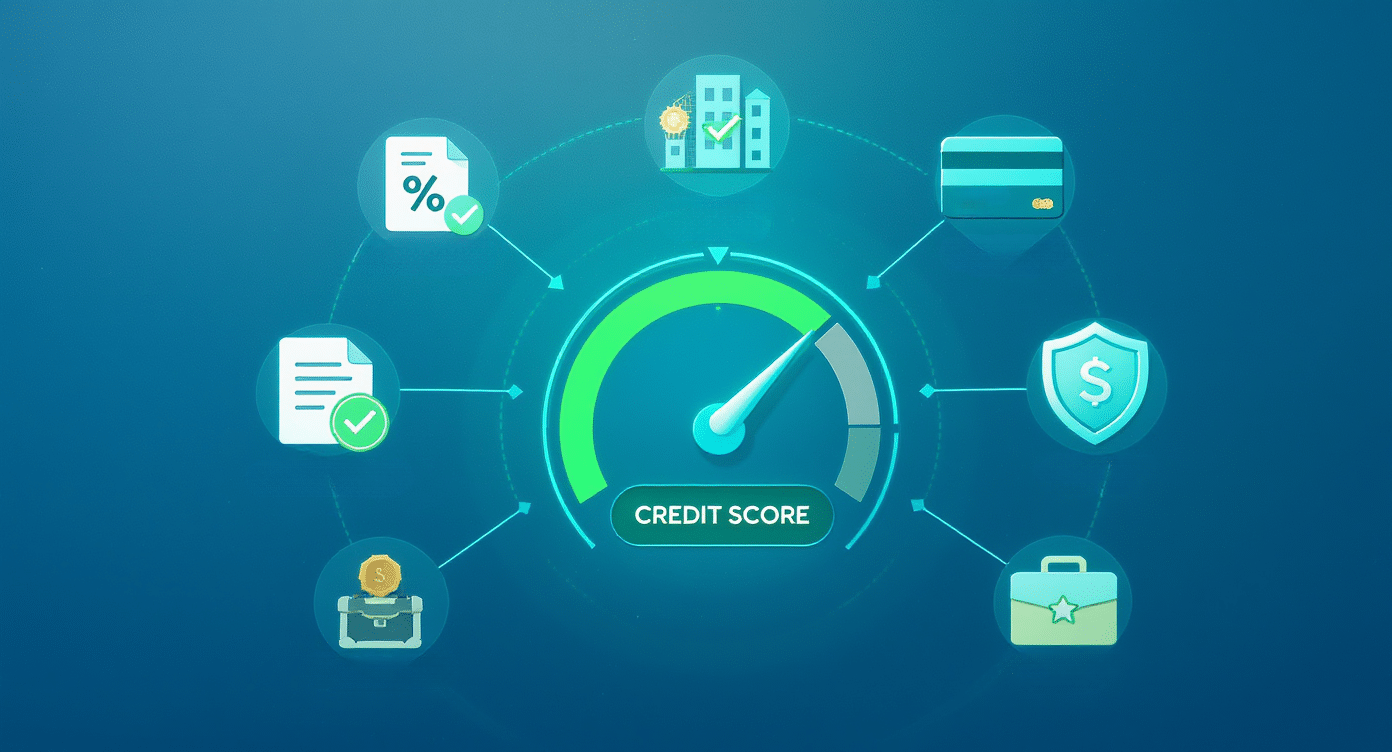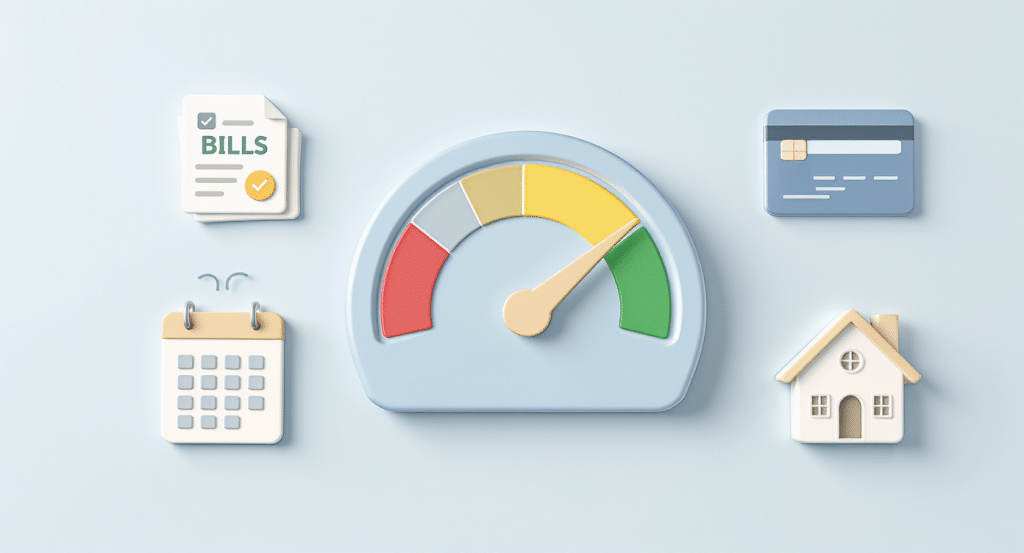When lenders assess financial trustworthiness, one of the first questions asked is what a good credit score is.
This number represents how responsibly you have managed debt and repayment over time. A higher score often leads to lower interest rates, easier loan approvals, and better rental or insurance options.
Scores vary by region, but most models consider payment history, credit utilization, account age, and inquiries. Your credit score serves as a financial passport, shaping opportunities and costs in everyday life.
By understanding what is a good credit score, you can take steps to strengthen your profile and open up new possibilities.
Why Your Credit Score Really Matters
Your credit score affects more parts of your life than you might think. It’s not just about getting loans anymore.
A good credit score opens doors to better interest rates on mortgages and car loans. You’ll save thousands of dollars over time. Landlords check your score before approving rental applications.
Some employers review credit reports during the hiring process. Insurance companies use scores to set your rates. Cell phone providers may require deposits if your credit score is low. Even utility companies check your credit before starting service.
I’ve seen people pay extra fees just because their score wasn’t where it should be. Your three-digit number carries real weight in the financial world. It’s worth your time to understand and improve it.
What is a Good Credit Score?

Understanding credit scores helps you make better financial choices. Let me break down what these numbers really mean.
Credit scores range from 300 to 850. Higher numbers mean better credit health. Here’s how lenders typically view different score ranges:
Score Ranges and What They Mean:
- 300-579 (Poor): Very limited loan options with high interest rates
- 580-669 (Fair): Some loan approval but with higher rates and fees
- 670-739 (Good): Most loans approved with reasonable rates
- 740-799 (Very Good): Better rates and terms on most credit products
- 800-850 (Excellent): Best rates and premium credit card offers
Most lenders consider a credit score of 670 and above to be good. At this level, you qualify for standard loan rates.
Banks view you as a reliable borrower. However, the sweet spot starts around 740. This is where you get access to the best deals.
What Makes a Score Poor or Bad
A poor credit score (below 580) creates serious financial problems. Lenders see you as high risk.
You’ll face loan rejections or extremely high interest rates. Credit card options become very limited. Many require security deposits or cosigners.
Landlords often reject rental applications. You’ll pay higher insurance premiums and utility deposits.
Even basic services, such as cell phone plans, cost more. Late payments, high balances, and collections have the most significant impact on your score.
What Makes a Score “Good” vs “Great”
A good credit score (670-739) gets you approved for most loans. You’ll pay reasonable interest rates. Credit cards will approve your applications. You won’t need cosigners for most purchases.
A great credit score (740+) puts you in the top tier. Lenders compete for your business. You get their lowest advertised rates. Premium credit cards with better rewards become available. Some lenders offer special programs for borrowers with high credit scores.
Behind the Numbers: How Credit Scores Are Calculated
Your credit score isn’t random. It’s based on specific factors from your credit report. Understanding these helps you improve faster.
Payment history makes up 35% of your score. This tracks whether you pay bills on time. Late payments can negatively impact your credit score for years. Even one missed payment can drop your score significantly.
The more recent the late payment, the worse the impact. What is a good credit score depends heavily on consistent payments. Amounts owed account for 30% of your score. This includes total debt and credit utilization. Using less than 30% of available credit helps your score.
Length of credit history contributes 15%. Older accounts boost your score over time. Credit mix adds 10%. Having different types of credit demonstrates your ability to manage various loans.
New credit inquiries make up the final 10%. Submitting too many applications in a short period can temporarily lower your score.
Why You Want a Good Credit Score on Your Side

Having a good credit score makes life easier and cheaper. Here are the key benefits you’ll get:
- Lower Interest Rates: Save thousands on mortgages, car loans, and credit cards with better rates
- Better Loan Approval: Get approved for loans and credit cards without jumping through extra hoops
- Higher Credit Limits: Access more credit when you need it for major purchases or emergencies
- Better Insurance Rates: Many insurers offer lower premiums to people with good credit scores
- Easier Apartment Rentals: Landlords prefer tenants with good credit, giving you more housing options
- Skip Security Deposits: Utility companies and cell phone providers often waive deposits for good credit
- Better Job Prospects: Some employers check credit as part of background screening for certain positions
- Premium Credit Cards: Qualify for cards with better rewards, cash back, and travel benefits
Credit Score Killers (and the Smart Moves to Fix Them)
Your credit score can drop quickly, but you can resolve most issues with the right approach. Here are common issues and solutions:
| Credit Score Killer | Impact on Score | Smart Fix |
|---|---|---|
| Late Payments | Can drop score 60-110 points | Set up automatic payments for at least the minimum amounts |
| High Credit Card Balances | Drops score 10-45 points per card | Pay down balances to under 30% of credit limits |
| Closing Old Credit Cards | Reduces average account age | Keep old cards open, use them occasionally to keep active |
| Too Many Credit Applications | 5-10 points per inquiry | Limit applications to when you really need new credit |
| Collections Accounts | Can drop score 50-100 points | Pay off collections or negotiate payment plans |
| Maxed Out Credit Cards | Major score damage | Pay down to 10% or less of credit limits for best results |
Wrapping It Up
Answering the question of what is a good credit score requires more than listing numbers.
A solid score reflects consistent responsibility, low utilization, and positive account history. With these elements in place, lenders extend better offers, saving money in interest and fees.
Even if your current score is not where you want it to be, small adjustments can create steady improvement over time. Paying bills on schedule, maintaining low balances, and regularly reviewing reports are proven steps.
Focusing on what a good credit score is empowers you to achieve stronger financial stability and long-term confidence.






































